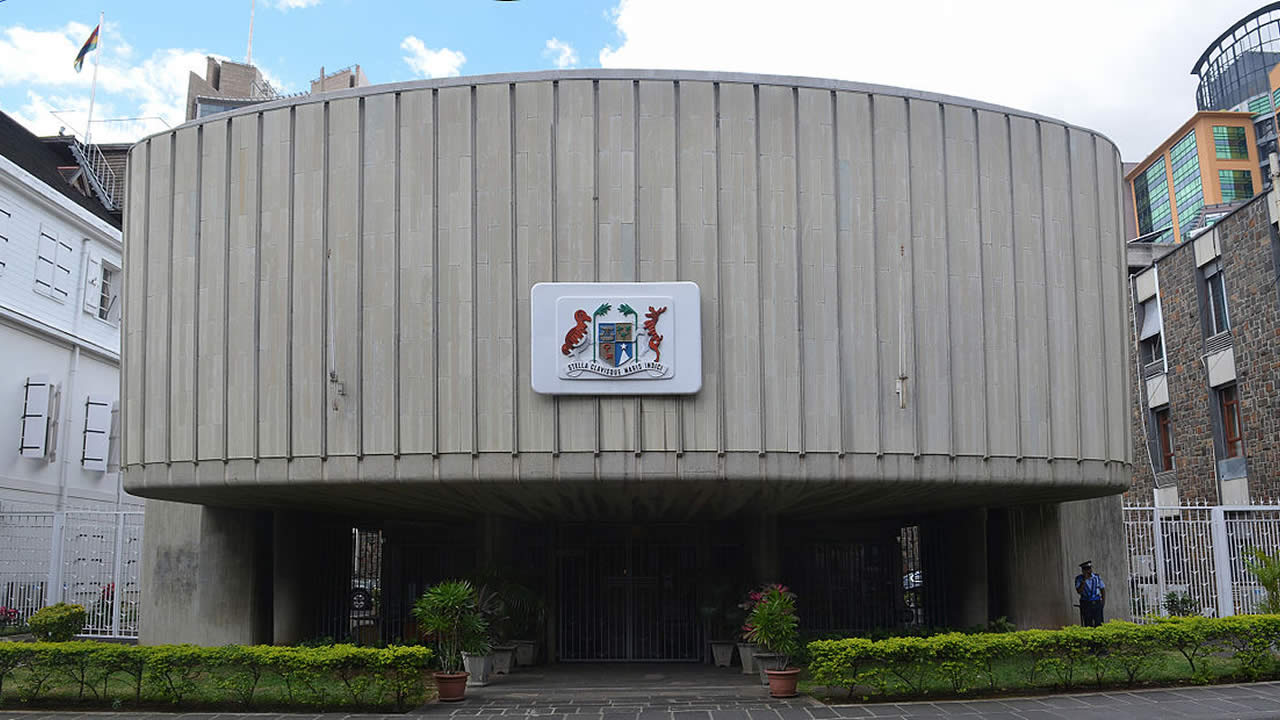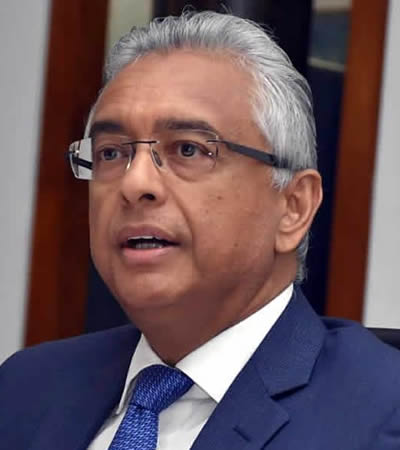
 To a question of MP Aadil Ameer Meea on the proposed introduction of the Freedom of Information Bill, the Prime Minister has stated that the exercise of internal examinations of the Bill is ongoing and, once completed, all stakeholders will most certainly be consulted prior to its introduction into the National Assembly. He emphasizes on the need to draw inspirations from the best practices in other jurisdictions so as to avoid any pitfalls or negative unintended consequences. “But at the end of the day, the law has to be home-grown and adapted to our local context, taking into account our local realities, including the required resources and its impact on public service delivery. Hence, the need to proceed with great care and caution,” he says.
To a question of MP Aadil Ameer Meea on the proposed introduction of the Freedom of Information Bill, the Prime Minister has stated that the exercise of internal examinations of the Bill is ongoing and, once completed, all stakeholders will most certainly be consulted prior to its introduction into the National Assembly. He emphasizes on the need to draw inspirations from the best practices in other jurisdictions so as to avoid any pitfalls or negative unintended consequences. “But at the end of the day, the law has to be home-grown and adapted to our local context, taking into account our local realities, including the required resources and its impact on public service delivery. Hence, the need to proceed with great care and caution,” he says.
The Prime Minister points out that it takes time to come up with a Freedom of Information Bill because it is a very complex issue and especially in the light of what has happened in other countries. “I am talking about countries like India, UK and others where even after having passed such a legislation, we have seen the consequences, the implications of that legislation, and there have even been comments made by Prime Ministers with regard to that legislation. We must be very careful. It will take the time it takes, but let us be very cautious about this,” he explains.
To a supplementary question of MP Alan Ganoo, the Prime Minister has quoted a World Bank Report about “the unintended negative consequences”: “The Hon. Member is talking about India, I will mention about India. In India, the legislation had led to greater public mistrust of Government and has damaged democracy. The American democracy has become dysfunctional, partly because of excess in transparency; too much openness has undermined the effectiveness and legitimacy of Government. And in UK, Madam Speaker, which is normally a model when we talk about transparency and so on, former Prime Minister Tony Blair, who introduced the Freedom of Information Act in the year 2000, has, himself, admitted that he regrets the Act. He described the Act as dangerous and utterly undermining of sensible Government. And for his part, the former Prime Minister, David Cameron, stated, and I quote – ‘We spend, or the system seems to spend, an age dealing with Freedom of Information requests, which are all about processes and actually what the public or the country wants to know is how much money you are spending, is that money being spent well and what are the results’. I think this summarises the very difficulty that we have, the complexity of the matter. And as I say, because once we come up with legislation, we have to be very, very cautious about what are the exact consequences of that kind of legislation.”
The unemployment rate is now at its lowest since 2001
Answering to MP Reza Uteem, the Prime Minister has announced that the unemployment rate is now at its lowest since 2001, that is, since the past 17 years. Moreover, it has been on a clear declining trend for the past three years. In fact, the unemployment rate fell to 6.9% in 2018, from 7.1% in 2017 and 7.3% in 2016. Due to effective economic policies to spur growth, to create jobs and to improve employability, the number of persons employed in the economy has grown from 559,200 in 2014 to 573,100 in 2018. The increase in employment means that the growth potential of the economy is also expanding.
Concerning the youth unemployment rate, it stood at 25.1% in 2018. This includes young people who are enrolled in part-time courses at the Open University, tertiary institutions and other training establishments but who are still looking for a job. Moreover, statistics show that 88% of the unemployed youths do find a job within one year. It is also pertinent to note that 52% of the unemployed youths find employment in less than five months. According to these statistics, there is practically no long-term unemployment among our youths. In fact, in almost all countries around the world, the unemployment rate among young people is higher than the overall unemployment rate.
The Prime Minister stated that the growth path of the economy has declined since 2009 with GDP growth reaching as low as 3.4% in 2013. However, for the past three years, including 2018, the growth rates have been higher at 3.8%. Moreover, Statistics Mauritius is forecasting a growth rate of 3.9% in 2019. The IMF is forecasting a growth rate of 3.9% for both 2019 and 2020 and 4% in the medium term. Moody’s is of the view that Government’s proactive approach via a wide range of projects and measures will support GDP growth of around 4% in 2019 and 2020. It is clear that the growth rate is firmly on a rising trend. As regards part (c) of the question, FDI inflows for the year 2018 are estimated by the Bank of Mauritius at Rs17.4 billion. It should be highlighted that in 2017, FDI inflows reached the highest level ever recorded, that is, Rs21.2 billion. These figures testify to the growing confidence of foreign investors in our economy. It should also be noted that the estimates for these three indicators, namely youth unemployment, GDP growth and FDI for the first quarter of 2019 will be published by end of June this year by Statistics Mauritius and the Bank of Mauritius.
Tourism: Decrease of funds allocated to promotion in the Chinese market
To a question of MP S. Rughoobur, the Minister of Tourism, Anil Gayan, stated that he has been informed by the Mauritius Tourism Promotion Authority that an amount of Rs39M has been earmarked for destination promotion in the Chinese market in the current financial year, out of which Rs22.09 m. has been spent so far on key marketing activities, including social media campaigns, media trips, the development of the MTPA Chinese website and road shows in China.
The Minister has highlighted that over the years, funds allocated to destination promotion in the Chinese market have decreased gradually due to the following factors –
- The withdrawal of China Southern Airlines from Mauritius in November 2015, following a policy decision of the then former Deputy Prime Minister and Minister of Tourism for the MTPA to stop providing marketing support to the airline. This resulted in a drop in airlift to the destination by 25,000 seats per year. Consequently, tourist arrivals from China dropped by 11.4% from 89,584 in 2015 to 79,374 in 2016. Had the marketing support not be withdrawn from China Southern Airlines, the target of 100,000 Chinese tourists would have long been attained taking into account that the Chinese carrier brought some 22,788 tourists to our destination during its period of operation.
- Air Asia ceased its operations on Mauritius in March 2017 leading to a loss of some 4,900 Chinese passengers carried by the airline during period November 2016 to March 2017.
- The withdrawal of Air Mauritius flights from Beijing since October 2017 caused a reduction of around 8% in tourist arrivals from China, from 79,374 in 2016 to 72,951 in 2017.
- The rationalisation policy of Air Mauritius in April 2018 on the Chinese route due to economic reasons, resulting in the stoppage of flights to Guangzhou, Chengdu and Wuhan, led to a further drop in Chinese tourist arrivals by 9.9%, from 72,951 in 2017 to 65,736 in 2018.
On the basis of existing airlift capacity of the Chinese route, this year the forecast is that tourist arrivals from China would further drop to around 47,593.
 J'aime
J'aime














